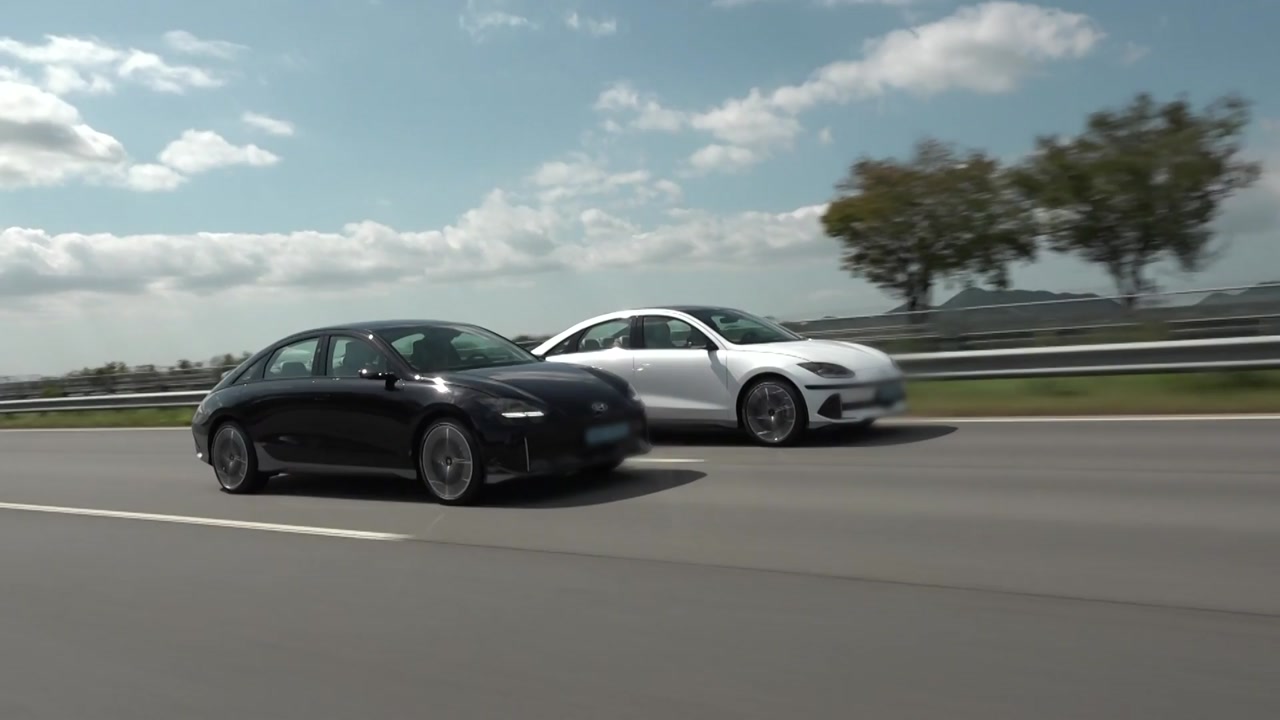Electric Vehicle Sales Slowdown: Canadian Consumer Interest Wanes

Table of Contents
Rising Costs and Inflationary Pressures
The price of electric vehicles remains a significant barrier to widespread adoption in Canada. Even with government incentives like rebates and tax credits, the upfront cost of purchasing an EV is considerably higher than that of a comparable gasoline-powered vehicle. Inflationary pressures have only exacerbated this issue, making EVs increasingly inaccessible to many Canadian consumers.
Increased Vehicle Prices
- Average EV Prices vs. Gas-Powered Vehicles: A comparison of average EV prices across various Canadian provinces reveals a substantial difference compared to gasoline-powered vehicles. In British Columbia, for example, the average price difference might be significantly higher than in Manitoba due to variations in provincial incentives and local market conditions.
- Supply Chain Disruptions and EV Production: Global supply chain issues, particularly the ongoing shortage of semiconductors and battery components, have contributed to increased manufacturing costs and longer wait times for EVs, further impacting their affordability.
- Effectiveness of Canadian Government Incentives: While the Canadian government offers various incentives to encourage EV adoption, their effectiveness in offsetting the high initial cost remains a subject of debate. Analyzing the impact of these incentives on consumer purchasing decisions is crucial for evaluating their success.
Higher Electricity Costs
The cost of charging an EV is another factor influencing consumer choices. While lower fuel costs are often touted as a major benefit of EVs, this advantage can be diminished in provinces with higher electricity rates.
- Provincial Electricity Price Variations: Electricity prices vary considerably across Canadian provinces, with some regions facing significantly higher costs than others. This disparity directly impacts the overall cost savings associated with EV ownership.
- Home Charging Station Costs and Availability: The installation of home charging stations adds to the initial investment cost, and their availability and affordability can vary widely depending on location and infrastructure.
- Impact on the Power Grid: The increased electricity demand from a growing EV fleet poses challenges for the Canadian power grid, potentially leading to increased electricity costs and the need for significant grid upgrades.
Range Anxiety and Charging Infrastructure Concerns
Range anxiety—the fear of running out of battery power before reaching a charging station—remains a significant hurdle for potential EV buyers in Canada. This concern is particularly pronounced among Canadians living in rural areas with limited charging infrastructure.
Limited Range of Some EV Models
- Cold Weather Impact on EV Battery Performance: Cold Canadian winters significantly impact EV battery performance, reducing their range and increasing charging times. This is a key concern for many potential buyers in colder regions.
- Urban vs. Rural Charging Infrastructure Disparity: The density of public charging stations varies significantly between urban and rural areas. The lack of readily available charging options in rural communities contributes to range anxiety and hinders EV adoption.
- Consumer Surveys and Range Anxiety: Numerous consumer surveys highlight range anxiety as a major factor influencing purchase decisions. Understanding these concerns is critical for addressing them effectively.
Insufficient Public Charging Stations
The lack of a robust and reliable public charging network across Canada is a substantial impediment to wider EV adoption.
- Charging Station Density Across Provinces and Cities: A comparative analysis of charging station density across different Canadian provinces and cities reveals significant disparities, highlighting the need for targeted infrastructure development.
- Challenges in Building and Maintaining Charging Infrastructure: The challenges associated with building and maintaining a comprehensive charging network, including land acquisition, grid connection, and ongoing maintenance, are significant.
- Government Initiatives to Expand the Charging Network: Various government initiatives aim to expand the public charging network, but their effectiveness and pace need to be continuously evaluated and improved.
Economic Uncertainty and Shifting Consumer Priorities
The current economic climate in Canada, characterized by rising interest rates, high inflation, and economic uncertainty, has significantly impacted consumer spending priorities. Many Canadians are now prioritizing essential expenditures over discretionary purchases like electric vehicles.
Economic Slowdown Impacts
- Interest Rate Hikes and Car Financing: Rising interest rates increase the cost of financing a vehicle, making EVs even less affordable for many consumers.
- Consumer Spending Trends in the Automotive Sector: Analyzing consumer spending trends in the automotive sector reveals a shift towards more affordable vehicles and a decreased demand for high-priced EVs.
- Attractiveness of Alternative Transportation Options: Economic hardship may lead consumers to consider more affordable transportation alternatives, such as public transit or used gasoline-powered vehicles.
Consumer Perception and Brand Loyalty
Consumer perception and brand loyalty also play a crucial role in the current slowdown of EV sales in Canada. Some consumers remain skeptical about the long-term reliability and environmental impact of EVs, while others maintain loyalty to established gasoline vehicle brands.
- Marketing and Public Perception: Effective marketing and public education campaigns are essential to address consumer misconceptions and promote a positive perception of EVs.
- Consumer Reviews and Feedback on EV Models: Analyzing consumer reviews and feedback on different EV models can help identify areas for improvement and address specific concerns.
- Impact of Brand Loyalty on Purchasing Decisions: The influence of brand loyalty on purchasing decisions should not be underestimated, highlighting the need for EV manufacturers to build strong brand recognition and trust.
Conclusion
The slowdown in Canadian electric vehicle sales is a multifaceted issue arising from a combination of factors, including escalating costs, range anxiety, insufficient charging infrastructure, and prevailing economic uncertainty. Overcoming these challenges requires a concerted effort involving government incentives, strategic infrastructure development, and targeted consumer education. Addressing the concerns related to the electric vehicle sales slowdown is crucial for accelerating the transition to sustainable transportation in Canada. Let's work collaboratively to overcome these hurdles and promote the widespread adoption of electric vehicles to create a greener future for Canada.

Featured Posts
-
 Nbc 5 Dallas Fort Worth Reports Hhs Selects Anti Vaccine Advocate To Investigate Autism Vaccine Link
Apr 27, 2025
Nbc 5 Dallas Fort Worth Reports Hhs Selects Anti Vaccine Advocate To Investigate Autism Vaccine Link
Apr 27, 2025 -
 Incoming Trade Deals Trumps 3 4 Week Prediction
Apr 27, 2025
Incoming Trade Deals Trumps 3 4 Week Prediction
Apr 27, 2025 -
 Cerundolo En Cuartos De Final De Indian Wells Ausencias De Fritz Y Gauff
Apr 27, 2025
Cerundolo En Cuartos De Final De Indian Wells Ausencias De Fritz Y Gauff
Apr 27, 2025 -
 Anti Trump Sentiment Divides Canada Albertas Exception
Apr 27, 2025
Anti Trump Sentiment Divides Canada Albertas Exception
Apr 27, 2025 -
 Accor Reports Shifting Travel Trends Favor Canada Over The United States
Apr 27, 2025
Accor Reports Shifting Travel Trends Favor Canada Over The United States
Apr 27, 2025
Latest Posts
-
 Podcast Creation How Ai Simplifies The Processing Of Repetitive Scatological Documents
Apr 28, 2025
Podcast Creation How Ai Simplifies The Processing Of Repetitive Scatological Documents
Apr 28, 2025 -
 From Scatological Documents To Podcast Success The Power Of Ai
Apr 28, 2025
From Scatological Documents To Podcast Success The Power Of Ai
Apr 28, 2025 -
 Ai Digest Transforming Scatological Data Into Engaging Podcast Content
Apr 28, 2025
Ai Digest Transforming Scatological Data Into Engaging Podcast Content
Apr 28, 2025 -
 Turning Poop Into Podcast Gold An Ai Powered Approach To Repetitive Documents
Apr 28, 2025
Turning Poop Into Podcast Gold An Ai Powered Approach To Repetitive Documents
Apr 28, 2025 -
 Covid 19 Pandemic Lab Owner Pleads Guilty To Fraudulent Testing
Apr 28, 2025
Covid 19 Pandemic Lab Owner Pleads Guilty To Fraudulent Testing
Apr 28, 2025
